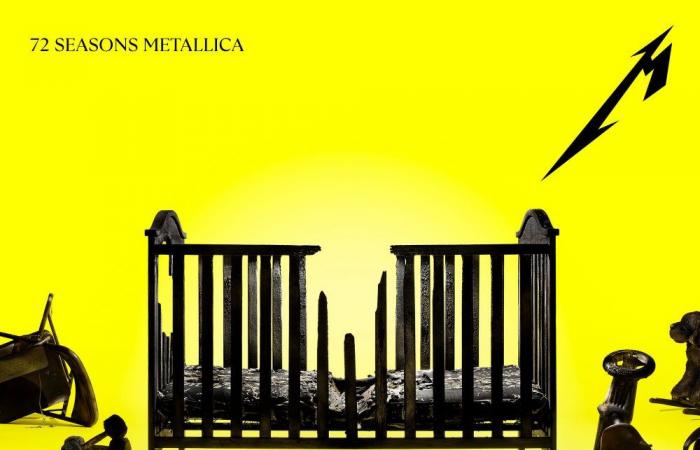72 Seasons Album Finally in Form 28 Seasons Later
Seven years. That’s how long it took Metallica to release their newest album. As a huge fan of Metallica, the anticipation of a new album was intense. When it came out, I was met with a monstrous 12-song one-hour and 17-minute task that went by the name of “72 Seasons.” While I love Metallica, even liking their most hated album, “St. Anger,” I had a hard time imagining listening to the entirety of the album all at once. I figured that while there would be some good songs on the album, it probably wouldn’t be worth over an hour of my time, especially since the majority of the songs were six minutes or longer, with the final song, “Imamorta,” being 11 minutes and 10 seconds long. I was wrong.
As the songs progressed, they kept getting better and better. The next song was always the best song of the album. Along with the quality, the energy of the album was persistent. It demanded to be loud as it would be a sin otherwise. The guitar work on this album was phenomenal. Every riff had a great groove that forced me to either bob my head or tap my foot. Besides the riffs, most, if not all, songs had guitar solos that were rock solid. While none were going to go down in the history books, none were bad, adding the perfect amount of shred to the songs. The other instruments also had their time to shine. Robert Trujillo was able to show off his skills as a bassist throughout the album with many standouts. One standout moment was “Sleepwalk My Life Away,” in which he has a punchy killer opener. Lars Ulrich, on percussions, while not the most technically skilled, made his presence known. Throughout the album, I kept noticing him playing. He was most noticeable in the faster-paced songs where you could just feel the speed and fury with the beating of the drums.
Musically this album continued the trend of the previous two, which returned to Metallica’s Roots as a thrash metal band. While thrash is known for being very aggressive and somewhat untamed, Metallica used their 40-plus years of experience to harness that raw energy into well-composed songs with excellent transitions between riffs and solos.
Thematically the album primarily focuses on mental health struggles. One of the first was “Screaming Suicide.” As the band put it themselves, this song is about how it is taboo to acknowledge depression. Another song is “If Darkness Had a Son,” in which temptation and addiction, which the lead singer James Hetfield himself has struggled with, are discussed as nearly impossible to beat. While this creates an overall negative tone, there is a light at the end of the tunnel.
This light was the aforementioned “Inamorata.” By far, this was the best song of the album and continues the theme of mental struggles. It can only be described as a saga. The first part of the song is about a struggle to find anything more than misery in life. From there, the second act slows down to a beautiful ballad reminiscent of earlier works like “Master of Puppets,” in which an epiphany is reached. In between the second and third acts, the song is transitioned to a faster tempo by a wonderful solo in which Kirk Hammett and James Hetfield harmonize. The third and final act is the realization that there’s more to life than misery. The song ends the otherwise bleak album on a high note that no matter what you’re struggling with, you can find something to live for and give yourself meaning.
If you like Metallica, metal, or just have an hour and a half to kill, this is a most wonderful way to do so. From beginning to end, the album only gets stronger and stronger deserving to be in the Metallica discography. The album never falters in quality and energy that makes the daunting hour and 17 minutes go by quicker than you’d think.












